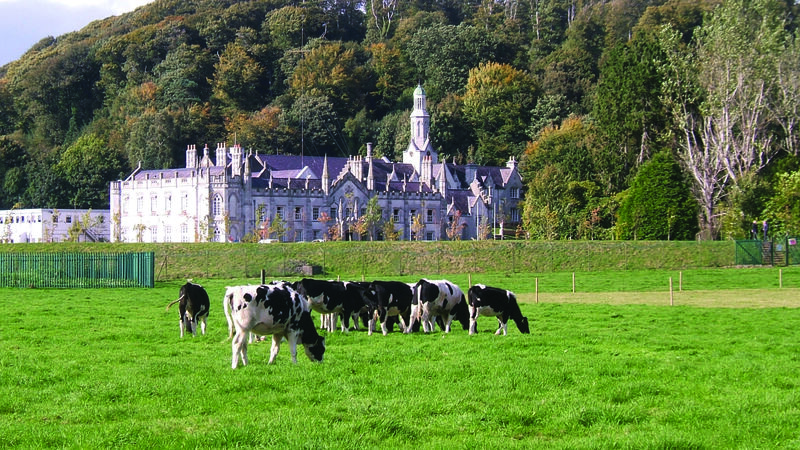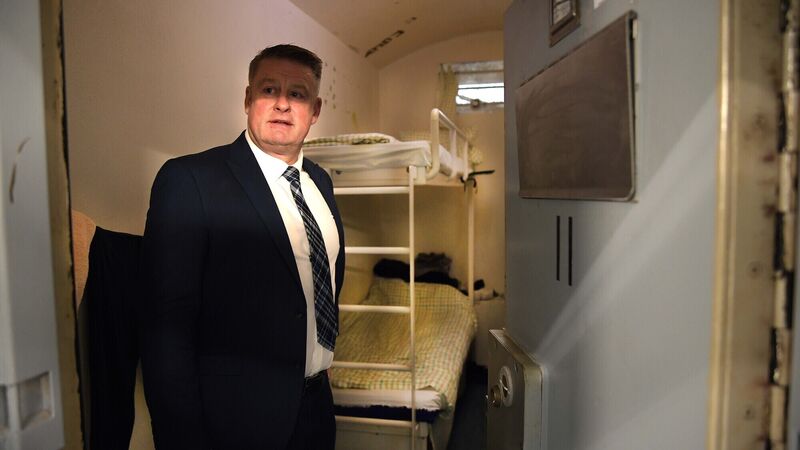In 2021, Damien Quinn started his “dream job”. Having just graduated from University College Cork with a master’s in cooperatives and social enterprise, his life is now “worlds apart” from the one he had been living just over a decade ago.
“If I told myself 10 years ago where I’d be today in my family life and in my professional life, I wouldn’t have believed it,” says Damien, 38, originally from Galway. What’s the dream job?
“The social enterprise regeneration project coordinator with Galway Rural Development,” says Damien.
In 2009, Damien left prison with big plans. He believes prison was the easy part. He soon found out that living with the consequences of his convictions after prison was the really hard part, because of the secondary punishment that comes with having the ex-offender label.
“Before prison, I ended up homeless, I lost everything, my family, and prison was the escape from the madness I was living. I had all these hopes and aspirations getting out the gate.
“I had done really well in prison and I had done open university courses, I had big plans to give back to my friends and family,” explains Damien.
However, on exit from prison, he was given a “bus pass and the price of a B&B for the night”. Not only this, but his major stepping stone, a rehab centre, had just had its funding withdrawn.
He got housing and was paying rent, but with no employer willing to give him work, he was relying entirely on social welfare.
“The biggest mistake for me was relocating away from where I had grown up because I was accountable to no one.
“I ended up going back into addiction and criminality and I had a drug-induced psychosis. It took several months to recover from that,” explains Damien.
“I got home, I took ownership of my behaviour and of my responsibility to my loved ones. I realised I was my problem,” he adds.
With so many employment rejections he decided to pursue education first.
“I came across a course in business and community development with Equal Ireland, I didn’t know how I’d pay for it, but I fell in love with the community development side of the course straight away. And then halfway through the course I got a job in distribution,” says Damien.
It was this job that would support him for the next several years with him progressing to manager of a national distribution network. The job allowed him to pay for his honours degree which he did during the day.
But the time came when he wanted to “go looking for work in the day” as he and his partner wanted to start a family. Now with a degree and years of employment at managerial level on his CV, the answer from employers was still “no” one hundred times over, once they had seen his old convictions.
“The only job that came up was in an auctioneers, a front-of-house role,” says Damien. It would be two weeks before his old life would interfere with his new one.
“The owner pulled me up and said: ‘What’s all this about?’ He had googled me. I told him: ‘That’s only part of the story, let me tell you everything’.
“I said: ‘You’re referring to my life that was a decade ago, I’ve put myself through education since then and I’ve come from a company where I was a manager, if it’s a problem I will go back’,” says Damien.
His new boss simply replied with: “We all have things in our past that we would like to forget”. Damien would work there for four years, before moving on to his current role.
“Employment played a crucial role in moving away from criminality,” says Damien.
Today, he is also halfway through starting his own social enterprise, Spéire Nua, based on his thesis from his master’s in UCC. He won seed funding from Social Entrepreneurs Ireland for it. The aim is to help people with convictions certify commitment to change and give a current and balanced view of the person today rather than only the person they used to be.
His big why?
“I heard all the big beautiful plans in prison about starting new lives, making amends and the plans for their families. Those stories came from people who are now dead and who are back where they were because the opportunities weren’t there and no one was willing to see past the convictions they cannot change,” says Damien.
“We accept we have done wrong and we want to move on in a constructive way. Society needs to capture that desire to give back otherwise people end up back where they came from and nobody wins in that situation,” he adds.
Follow Damien on Twitter @SpeireN
MON, 11 APR, 2022 – 19:51
JOYCE FEGAN









